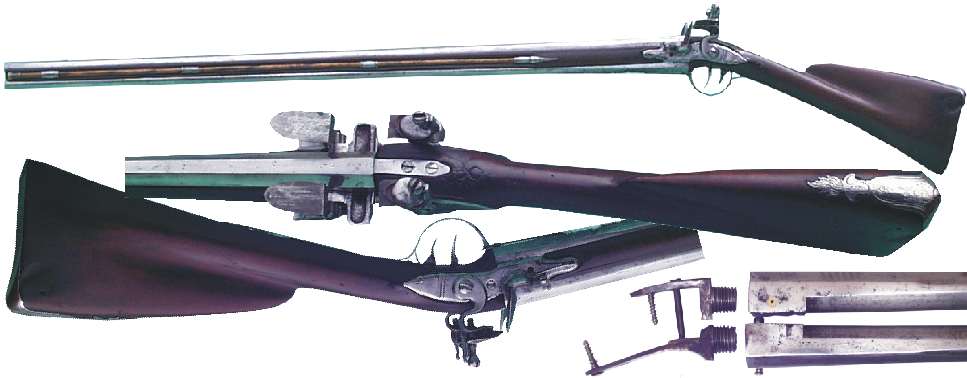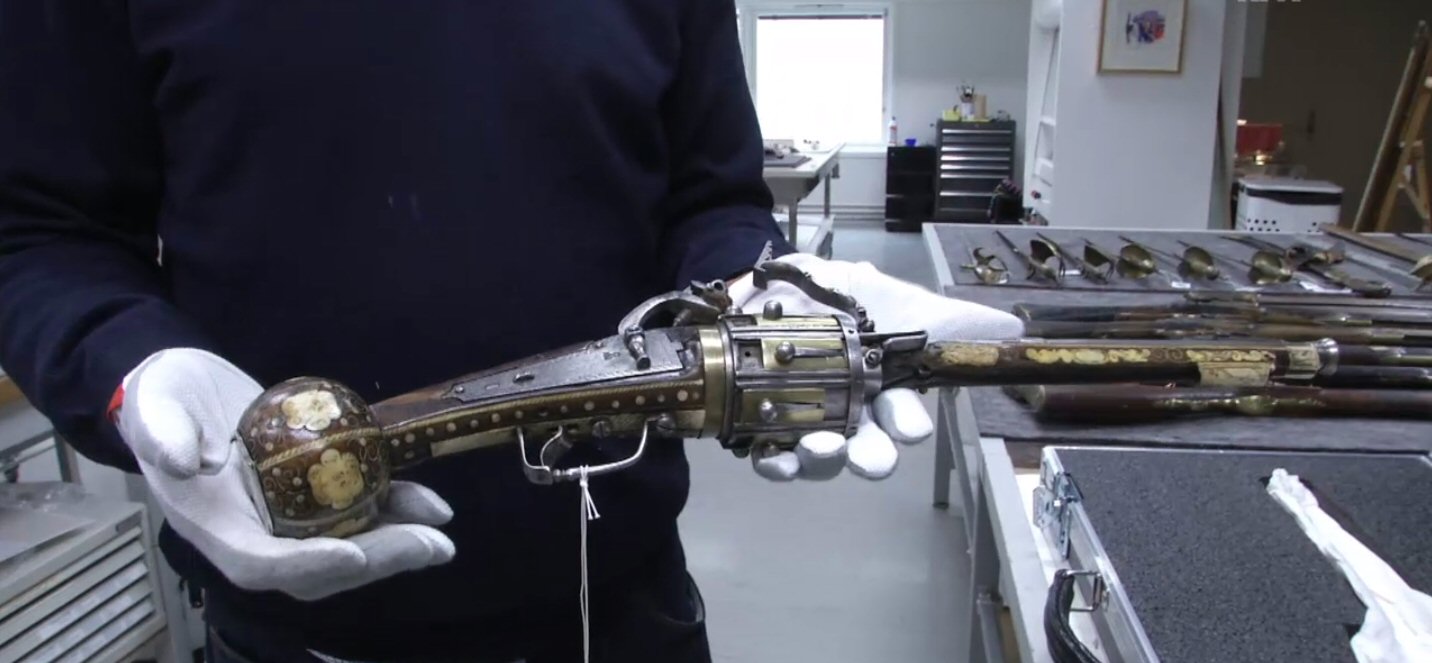No prob Chris, appreciate any input it helps me to view things from a different perspective. If people can see things that I've missed or misinterpreted and point me at it I can try to reason it out. The lock isn't such a problem now but there's nothing like the stock on record anywhere (that hasn't got a wheel or a flint in it). Most people just explain it away as a Victorian fantasy and that just doesn't stack up. The Victorians were great at making reproduction suits of armour,swords,wheel locks, stands of arms etc. There was a huge demand towards the middle and end of the 19th cent. but not for something like this, not pretty enough. I'll doubt I'll ever be able to prove it's 17th century because nothing like it exists, but if I can disprove it being Victorian that's a step in the right direction. If the stock is contemporary with the lock then it must be pre 1850 ish because of the side nails. The only other alternative would be possibly 20th century so looking for a civil war enthusiast, but civil war re-enactment societies are a relatively recent phenomena,last 50 or so years, it's older than that. Plus then you have the problem of where do you find one of these locks and why would you stock it in something that throws doubt on its authenticity. Certainly a puzzle. I keep going over the same old ground but it keeps leading me back in the same direction.








